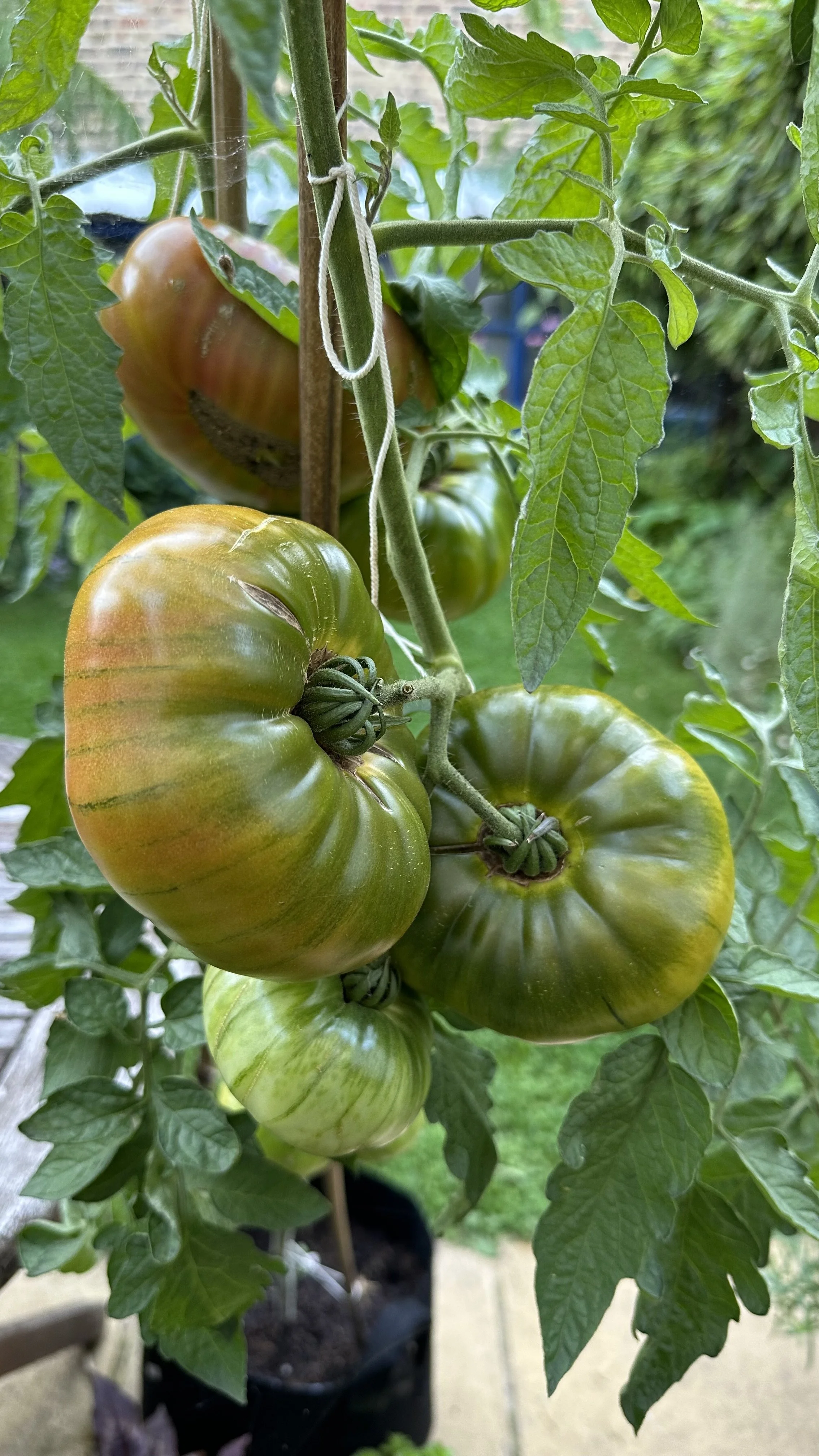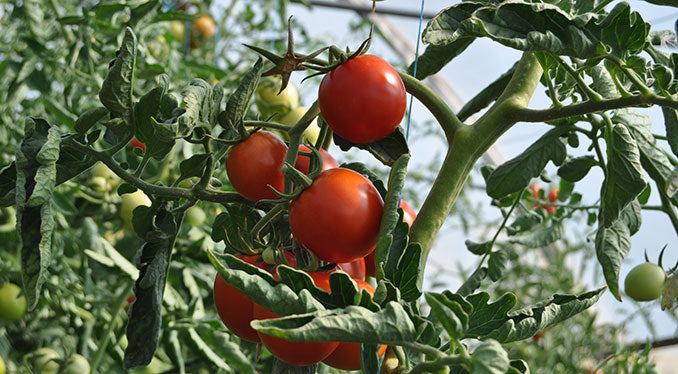Coffee grounds can be beneficial for tomato plants as a soil amendment. They add organic matter and nutrients to the soil.
Garden enthusiasts often seek natural ways to enhance the growth and health of their plants. Coffee grounds, a widely available kitchen scrap, have gained attention for their potential use in gardening. Rich in nitrogen and a source of other minerals like potassium and phosphorus, coffee grounds can help to enrich the soil as they decompose.
Integrating them into your garden provides a sustainable method to recycle waste while possibly deterring pests due to their strong smell. While suitable in moderation, overuse of coffee grounds can lead to soil acidity shifts, so it’s essential to balance their application with the pH preferences of tomato plants. This approach aligns with organic gardening practices, keeping tomato plants robust and promoting eco-friendly cultivation techniques.

Perks Of Coffee Grounds For Tomato Plants
Coffee grounds boast a wealth of nutrients essential for tomato plant growth. These grounds contain nitrogen, phosphorus, and potassium. These elements foster healthy plant development. Coffee grounds also improve soil structure. This makes it easier for tomato roots to spread out. Additionally, grounds enhance soil drainage. This helps prevent water from pooling around the plants. Antioxidants in coffee grounds can also benefit tomato plants. They may help in fighting diseases.
Used coffee grounds attract earthworms. Earthworms are great for gardens. They break down soil and make nutrients available to plants. Also, coffee grounds act as a natural fertilizer. This can reduce the need for chemical options. Thus, using coffee grounds can both save money and enhance plant health.

Using Coffee Grounds Correctly
Coffee grounds can benefit tomato plants, but correct use is key. A light sprinkle around the base enhances soil quality. Mix grounds with organic compost before application to avoid clumps.
Distribute grounds evenly across the soil surface. This prevents excess acidity and mold growth. Limit application to once every few weeks. Excessive use harms plants. Rinse the grounds to reduce acid levels before application.
Methodical Mix: Composting Coffee Grounds
Tomato plants thrive on rich, organic matter. Coffee grounds provide essential nutrients, like nitrogen, potassium, and phosphorus. By mixing coffee grounds into compost, you create a powerful conditioner for soil.
Microbes love coffee grounds. This means better breakdown of organic matter. Your compost will be teeming with life, helping roots to absorb more nutrients. It’s beneficial for worm activity, too. Happy worms contribute to healthier soil.

Direct Mulching With Coffee Grounds
Direct mulching with coffee grounds can be beneficial for tomato plants. These grounds suppress weeds that compete for nutrients. A thin layer on the soil surface does the job. It acts like a barrier, stopping weed seeds from sprouting. Maintaining moisture is also key for healthy tomatoes.
Using coffee grounds helps the soil hold water. This means less watering for your plants. But, be careful not to overdo it. A thick layer can form a crust. This crust can stop water from reaching the roots. Instead, use a light sprinkle around your plants. This will keep the soil moist and weed-free.
The Science Behind Coffee Grounds And Tomato Growth
Coffee grounds can alter soil acidity, benefiting tomato plants that prefer slightly acidic soil. Used in moderation, coffee grounds enhance soil fertility and structure. Rich in nitrogen, they nourish the soil as they break down. Tomato plants thrive with a lower pH level, and coffee grounds can help achieve this balance.
Caffeine, found in coffee grounds, serves as a natural repellent against destructive garden pests. It deters slugs and snails, which harm tomato plant leaves. Yet, it is safe for the plant. Applying grounds around your tomatoes can create a protective barrier. Do not use too much, or it might hinder plant growth. A thin layer around the plant base is enough. It provides protection and nutrition.
Real Gardeners’ Experiences With Coffee Grounds
Real gardeners have tried coffee grounds with their tomato plants. Many report positive results. They notice healthier growth and more tomatoes. Why? Coffee grounds add nitrogen to the soil. This helps tomato plants grow strong.
Some gardeners also say coffee grounds repel pests. Snails and slugs don’t like the grounds. This means fewer holes in the tomatoes!
Not all experiences were good, though. Some found that too much can harm the plants. It’s important to use the right amount. A thin layer is key. Too much can prevent water from soaking the soil.
| Gardener | Amount Used | Result |
|---|---|---|
| Alex | Small handful per plant | Lush growth |
| Sam | One cup per square yard | More tomatoes |
| Jamie | Half inch layer | Slow water absorption |
Frequently Asked Questions On Are Coffee Grounds Good For Tomato Plants
How Often Should I Put Coffee Grounds In My Tomato Plants?
Apply coffee grounds to your tomato plants every two to four weeks to improve soil health and provide nutrients.
What Plants Should I Not Put Coffee Grounds On?
Avoid using coffee grounds on plants that prefer alkaline soil, such as lavender, succulents, and asparagus ferns. Coffee grounds are acidic and can harm these sensitive species. Choose neutral or acidic-loving plants for coffee ground fertilization instead.
Which Vegetable Plants Benefit From Coffee Grounds?
Coffee grounds benefit acid-loving vegetable plants such as tomatoes, carrots, and radishes by improving soil structure and fertility.
Can I Just Sprinkle Coffee Grounds On Plants?
Yes, you can sprinkle coffee grounds on plants as a mild fertilizer and to deter pests, but do so sparingly to avoid excessive acidity.
Conclusion
To wrap up, coffee grounds can be a boon for your tomato plants when used properly. They add essential nutrients back into the soil. Just remember to mix them with compost to avoid over-acidifying. Happy gardening and may your tomatoes flourish with this natural, resourceful tip!

